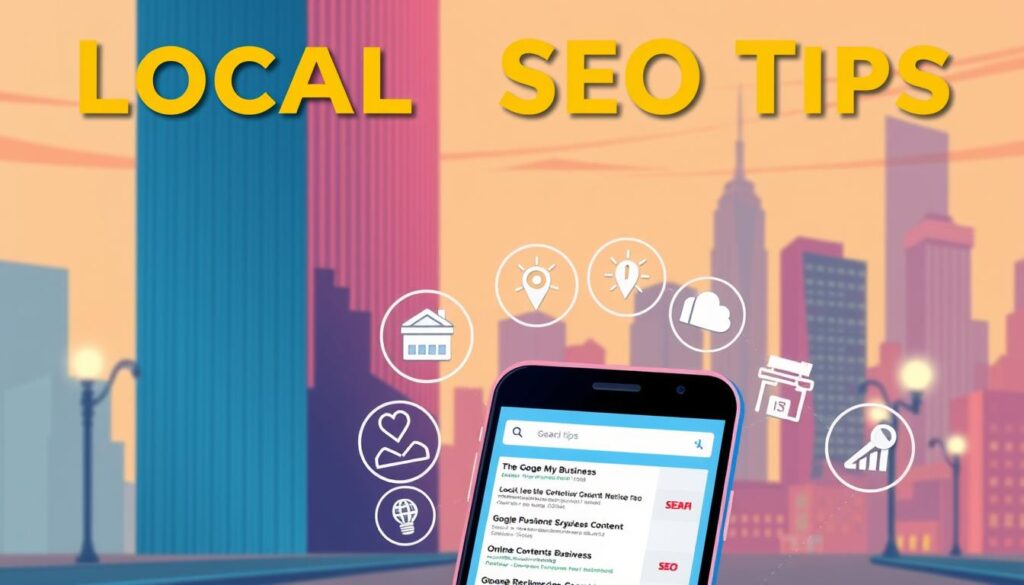Have you ever wondered who the masterminds are behind the ever-evolving world of digital marketing? In the UK, a host of experts are driving innovation and shaping the future of this dynamic industry. From search engine optimisation to social media strategies, these professionals are at the forefront of modern marketing techniques.
Digital marketing has come a long way since the advent of the internet in the 1990s. Today, it encompasses a wide range of tools and platforms, including websites, mobile apps, and social media. The UK, in particular, has seen remarkable growth in its digital sector, contributing nearly £151 billion to the economy in 2019. This growth has been driven by the increasing adoption of superfast broadband, with over 97% of UK premises now having access to it.
The role of a digital marketer has become crucial in this landscape. They combine traditional marketing methods with cutting-edge digital approaches to target consumers more effectively. Whether it’s through search engine campaigns or engaging social media content, the goal is to create meaningful interactions with audiences.
As you delve into this article, you’ll discover more about the key figures and experts leading the charge in the UK’s digital marketing scene. You’ll also gain insights into how modern tools and strategies are transforming the industry. To learn more about the trends and strategies shaping digital marketing, visit our guide on digital marketing experts.
Key Takeaways
- Digital marketing in the UK is driven by experts specialising in various fields such as SEO and social media.
- The digital sector contributed nearly £151 billion to the UK economy in 2019.
- Superfast broadband coverage in the UK has risen significantly, supporting digital growth.
- Digital marketers combine traditional and digital methods to enhance consumer targeting.
- Modern tools like search engines and social media are central to creating engaging campaigns.
Understanding the Digital Marketing Landscape
Digital marketing is the use of digital channels to promote brands, products, and services. It combines technologies like social media, email, and PPC to meet marketing goals. This approach has evolved from traditional methods like print and television to online strategies, offering precise targeting and measurable results.
Defining Digital Marketing
Digital marketing involves using online platforms to engage with audiences. It’s more than just social media ads; it includes email campaigns, SEO, and content marketing. These strategies help businesses reach the right people at the right time, driving engagement and sales.
Traditional vs Digital Approaches
Traditional marketing relies on print, TV, and radio, which are less targeted. Digital marketing, however, uses data to target specific audiences, making it more cost-effective. For example, email marketing allows personalized communication, while social media enables real-time engagement, shifting consumer behavior towards online interactions.
By integrating email marketing and social media, businesses can enhance their strategies. Digital media transforms customer interactions, enabling brands to deliver tailored messages. This section lays the groundwork for understanding the roles of digital marketing professionals in the UK.
Who is digital marketing: Uncovering the Role of Digital Marketers
Digital marketers are the driving force behind the strategies that help businesses thrive online. Their work spans multiple channels, ensuring brands reach their target audiences effectively.
Key Responsibilities
Digital marketers manage multi-channel campaigns, analyse customer behaviour, and adapt strategies based on data insights. They ensure a strong brand presence across various platforms, making sure messages reach the right channels.
| Responsibility | Skills Required |
|---|---|
| Managing Multi-Channel Campaigns | Understanding of SEO and PPC |
| Analysing Customer Behaviour | Proficiency in Data Analytics |
| Adapting Strategies | Ability to Interpret Search Insights |
Essential Skills for Success
Success in this field requires a blend of creativity and technical skills. Digital marketers need to be adept at SEO and PPC, while also understanding how to engage customers through various channels.
By combining these skills, digital marketers continuously innovate, ensuring their strategies remain effective and aligned with customer needs.
The Rise of Digital Marketing in the UK
Digital marketing has transformed how businesses in the UK engage with their audiences, creating new opportunities for growth and interaction. This section explores the journey from early digital ads to modern strategies, highlighting how businesses have adapted to stay competitive.
Historical Evolutions and Milestones
The 1990s marked the beginning of digital marketing in the UK, with basic websites and SEO. As technology advanced, so did strategies, with social media and mobile tech becoming key players. Email marketing, though less targeted, laid the groundwork for understanding consumer behavior.
| Year | Milestone |
|---|---|
| 1990s | Emergence of basic websites and SEO |
| 2000s | Rise of social media platforms |
| 2010s | Mobile optimization becomes crucial |
Impact on Local Businesses
Local businesses in the UK have embraced digital marketing to reach consumers effectively. Content strategies and targeted campaigns have redefined market interactions, allowing companies to build strong online presences and engage with their audiences more personally.
For more insights on the future of digital marketing in the UK, visit this guide. Companies are also leveraging services from top digital marketing agencies, as seen here.
Core Digital Marketing Channels
What makes a successful digital marketing strategy? It all comes down to the right mix of channels. Let’s explore the key platforms that help businesses connect with their audience effectively.
SEO and Website Optimisation
SEO is the backbone of any digital strategy. By optimising your website and content, you can improve search engine rankings and attract more organic traffic. Higher rankings mean greater visibility, making it easier for your target audience to find you. Regular updates and relevance are key to keeping your site in top search results.
Content and Email Marketing
Content marketing draws people in with valuable information, while email marketing keeps them engaged. Personalised emails can nurture leads and encourage conversions. By sharing insights and offers, you build trust and keep your audience coming back for more.
Pay-Per-Click and Social Media
PPC and social media ads offer quick, measurable results. Platforms like Google Ads and Facebook allow you to target specific groups, ensuring your ads reach the right people. Immediate feedback helps you refine your approach and boost ROI efficiently.
Each channel plays a unique role in a cohesive strategy, enhancing audience engagement and driving conversions. Together, they create a powerful approach to achieve your business goals.
Leveraging Social Media and Online Platforms
Social media has become an essential tool for businesses to connect with their audience and build lasting relationships. In this section, we’ll explore how you can harness these platforms to boost your brand’s visibility and engagement.
Building Brand Awareness on Social Media
Choosing the right social media platform is crucial for promoting your products and services. Facebook, Instagram, and Twitter each offer unique opportunities to connect with your target audience. By combining search engine optimisation with social media marketing, you can significantly enhance your online visibility. Consistency is key—regular posting and high-quality content help maintain your audience’s trust and interest.
When selecting a platform, consider where your audience spends most of their time. For example, visual-centric products thrive on Instagram, while B2B interactions might find more success on LinkedIn. This strategic approach ensures your efforts are focused and effective.
Strategies for Effective Engagement
Engaging your audience requires more than just posting content. Interactive elements like polls, quizzes, and Q&A sessions can drive participation and foster a sense of community. Leveraging trending topics and viral challenges can also increase your brand’s reach and relevance.
Collaborating with influencers and utilising user-generated content can enhance authenticity and credibility. Tools like social listening help you track audience sentiment, allowing you to refine your strategy and better meet their needs. Paid advertising on these platforms offers precise targeting and measurable results, making it easier to scale your brand’s reach and impact.
The Importance of Customer Engagement and Personalisation
Customer engagement and personalisation are at the heart of successful campaigns. In today’s competitive market, understanding your audience and delivering tailored messages is key to building lasting relationships and driving awareness.
Enhancing Customer Experience
Engagement is about more than just interactions—it’s about creating meaningful connections. Personalisation helps brands stand out, ensuring that customers feel valued. For instance, using data to tailor messages can boost campaign effectiveness and customer satisfaction over time.
Tailoring Messages to Your Audience
Modern tools allow businesses to track interactions and use that information to refine strategies. By understanding what resonates with your audience, you can adjust your approach to improve engagement and conversion rates.
| Metric | Importance |
|---|---|
| Engagement Levels | Measures interaction quality |
| Conversion Rates | Indicates successful campaigns |
| Awareness | Drives brand visibility |
Personalisation can reduce acquisition costs and boost revenue, making it a vital part of any strategy. By leveraging real-time feedback and campaign data, businesses can deliver messages that resonate, fostering loyalty and growth.
Challenges and Opportunities in Digital Marketing
In today’s fast-paced digital world, businesses face a dual challenge: standing out in a crowded online space while delivering authentic engagement. This section explores the obstacles digital marketers encounter and the innovative strategies they can employ to succeed.
Overcoming Digital Saturation
Digital saturation is a significant hurdle, with consumers overwhelmed by the sheer volume of online content. To rise above the noise, businesses must balance their service offerings with clear engagement goals. By leveraging data and analytics, marketers can craft personalised campaigns that resonate with their target audience.
Platforms like Facebook offer targeted outreach solutions, enabling brands to connect with specific demographics effectively. This approach not only enhances visibility but also ensures that your message is seen by those most likely to engage.
Innovative Approaches to Engagement
Embracing innovation is key to capturing attention in a saturated market. By harnessing marketing datum, businesses can create campaigns that are both innovative and personalised. For instance, using Facebook’s advanced targeting features allows for precise audience segmentation, ensuring your efforts yield higher engagement rates.
| Strategy | Benefit |
|---|---|
| Targeted Facebook Ads | Reaches specific demographics |
| Data-Driven Insights | Enables personalised campaigns |
| Service-Oriented Goals | Ensures authentic engagement |
By embracing these strategies, businesses can overcome challenges and unlock new opportunities for growth. For more insights on navigating these challenges, visit our guide on digital marketing challenges.
Measuring Success in Digital Marketing
Understanding how to measure the success of your digital marketing efforts is crucial for optimising campaigns and ensuring a strong return on investment. In this section, we will explore the key metrics and tools you need to track your progress effectively.
Key Performance Indicators (KPIs)
KPIs are essential for evaluating the performance of your digital marketing strategies. These metrics provide insights into how well your campaigns are resonating with your target audience. Common KPIs include conversion rates, click-through rates (CTR), and cost per lead (CPL). For instance, a high conversion rate indicates that your message is effectively driving sales, while a low CTR may suggest that your ads need refinement.
Data-Driven Decision Making
Leveraging technology and analytics tools allows you to make informed decisions. Platforms like Google Analytics provide real-time data on how visitors interact with your page, helping you identify areas for improvement. By monitoring these metrics, you can adjust your strategies to enhance engagement and boost sale opportunities.
Setting realistic goals is another critical aspect of successful digital marketing. Use SMART goals to ensure your objectives are specific, measurable, achievable, relevant, and time-bound. For example, aiming to increase website traffic by 20% in three months is a clear, actionable target. Regularly reviewing and adjusting your strategy based on performance data will help you stay on track and maximise your ROI.
Emerging Technologies Shaping Digital Marketing
The digital marketing landscape is constantly evolving, with new technologies reshaping how businesses connect with their audiences. From AI-driven automation to immersive metaverse experiences, these innovations are opening up fresh opportunities for engagement and growth.
AI and Marketing Automation
Artificial Intelligence (AI) is revolutionising the way marketers work. By streamlining campaign management and enhancing customer targeting, AI enables more precise and personalised online strategies. Predictive analytics, powered by AI, allows businesses to forecast trends and tailor their media marketing efforts to meet consumer demands effectively. This not only improves efficiency but also ensures that PPC campaigns deliver higher returns on investment.
The Role of the Metaverse
The metaverse is emerging as a groundbreaking platform for interactive and immersive brand experiences. It offers businesses the chance to create virtual environments where customers can engage with products in entirely new ways. Whether it’s a virtual product launch or an interactive event, the metaverse is set to redefine how brands connect with their online audiences.
| Technology | Impact on Industry | Opportunities |
|---|---|---|
| AI and Automation | Enhanced targeting and efficiency | Personalised media marketing and higher ROI for PPC campaigns |
| Metaverse | Immersive brand experiences | Virtual product launches and interactive customer engagement |
As these technologies continue to evolve, they promise to transform the digital marketing industry, offering new ways to engage and convert online audiences. By embracing these innovations, businesses can stay ahead in a competitive market and deliver exceptional online experiences.
Building a Digital Marketing Strategy for Your Business
Creating a tailored digital marketing strategy is essential for any business aiming to thrive in today’s competitive online landscape. This section will guide you through the process of developing a strategy that aligns with your unique business needs, helping you achieve your goals effectively.
Setting Clear Objectives and Goals
Start by defining clear, measurable objectives that align with your overall business goals. Conduct thorough research to understand your target audience’s interests and preferences. Platforms like Instagram can provide valuable insights, helping you refine your approach. For example, if your audience shows interest in visual content, consider investing in high-quality images or videos to engage them more effectively.
Budgeting and Resource Allocation
Allocate your budget wisely, ensuring you invest in the most effective channels. Instagram, for instance, can be a powerful platform for businesses targeting visually-oriented audiences. Use your research findings to determine where to focus your efforts, whether it’s through social media ads, content creation, or other digital channels. Remember, effective budgeting ensures your strategy remains sustainable and adaptable over time.
By combining careful planning with actionable insights, you can build a robust digital marketing strategy that drives real results for your business.
Conclusion
As we conclude our exploration of the ever-evolving field of digital marketing, it’s clear that today’s landscape is more dynamic than ever. From the rise of AI-driven automation to the immersive experiences offered by the metaverse, the range of tools available to businesses continues to expand.
Digital marketers play a pivotal role in navigating this diverse field, blending creativity with technical expertise to deliver tailored campaigns. The ability to adapt to emerging technologies and shifting consumer preferences is key to staying competitive today.
Throughout this article, we’ve covered a list of essential strategies and insights, from SEO optimisation to social media engagement. By leveraging these approaches, businesses can enhance their online presence and drive meaningful interactions with their audience.
As you move forward, consider the range of digital marketing trends available today. Whether you’re focusing on personalised content or exploring new platforms, staying informed is crucial. For more insights on effective strategies, visit our guide on digital marketing services.
In conclusion, the field of digital marketing remains a vibrant and ever-changing space, offering countless opportunities for growth and innovation. By embracing this range of tools and strategies, you can create campaigns that resonate and deliver results in today’s competitive market.
FAQ
What role does a digital marketer play in business growth?
A digital marketer drives business growth by creating strategies that boost brand visibility and customer engagement. They use channels like SEO, social media, and email to attract and retain customers, ensuring the business reaches its target audience effectively.
How does SEO improve website visibility?
SEO enhances website visibility by optimising content with relevant keywords, ensuring your site ranks higher on search engines like Google. This increases organic traffic and helps businesses reach their target audience more effectively.
What makes social media marketing effective for brand awareness?
Social media marketing is effective because platforms like Facebook and Instagram allow businesses to connect with a vast audience. Consistent, engaging content helps build brand loyalty and trust, making it easier to achieve marketing goals.
How can email marketing campaigns be made more engaging?
Email campaigns become engaging through personalisation and relevant content. Using customer data to tailor messages ensures emails are more likely to be opened and acted upon, improving overall campaign effectiveness.
What is the significance of PPC in digital marketing?
PPC, or Pay-Per-Click, is significant as it allows businesses to display ads and pay only when someone clicks. This cost-effective method helps reach a targeted audience quickly, driving traffic and conversions.
How do businesses measure the success of their digital marketing efforts?
Businesses measure success through KPIs like website traffic, conversion rates, and engagement metrics. Tools like Google Analytics provide data to assess performance and make informed decisions for future strategies.
What impact does customer engagement have on brand loyalty?
Positive customer engagement fosters brand loyalty by making customers feel valued. Personalised interactions and consistent communication build trust, encouraging repeat business and long-term relationships.
How are emerging technologies like AI influencing digital marketing?
AI influences digital marketing by automating tasks and providing insights. It helps in personalising customer experiences, predicting trends, and optimising campaigns, making marketing efforts more efficient and effective.
What strategies can businesses use to overcome digital saturation?
Businesses can overcome digital saturation by innovating their strategies. Using unique content, interactive campaigns, and emerging technologies helps capture attention and stand out in a crowded market.
How important is data in making marketing decisions?
Data is crucial as it provides insights into customer behaviour and campaign performance. It enables businesses to make informed decisions, allocate resources effectively, and achieve their marketing goals efficiently.










